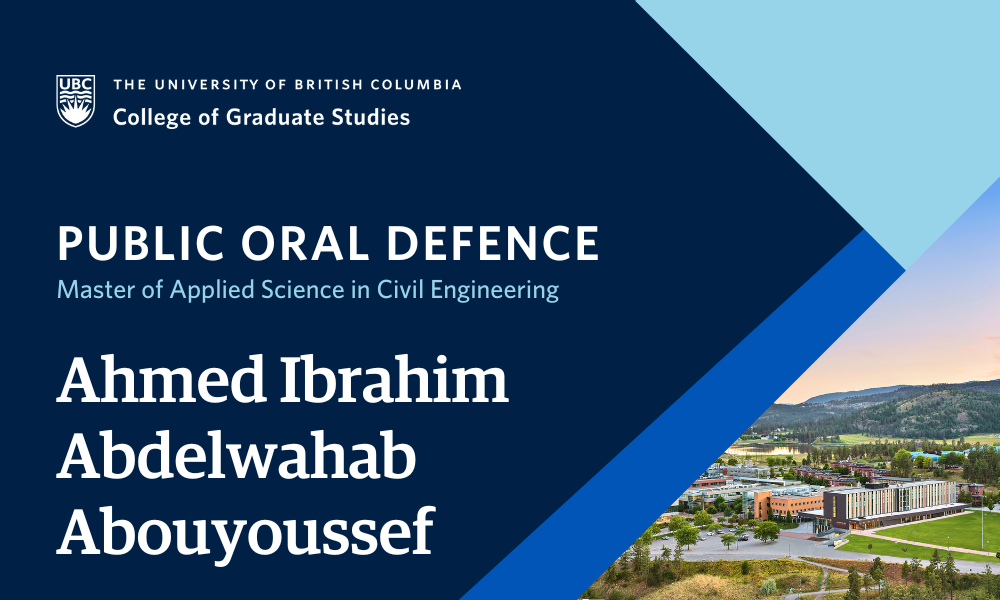
- This event has passed.
Thesis Defence: Investigating Strategies for Energy-Efficient Residential Buildings: A Life Cycle Thinking Approach
August 9, 2024 at 9:00 am - 1:00 pm

Ahmed Ibrahim Abdelwahab Abouyoussef, supervised by Dr. Kasun Hewage and Dr. Rehan Sadiq, will defend their thesis titled “Investigating Strategies for Energy-Efficient Residential Buildings: A Life Cycle Thinking Approach” in partial fulfillment of the requirements for the degree of Master of Applied Science in Civil Engineering.
An abstract for Ahmed Ibrahim Abdelwahab Abouyoussef’s thesis is included below.
Defences are open to all members of the campus community as well as the general public. Please email Kasun.Hewage@ubc.ca to receive the Zoom link for this defence.
ABSTRACT
The buildings are responsible for one-third of the direct and indirect CO2 emissions and contribute to over 30% of worldwide energy consumption. In Canada, the buildings account for 29.3% of overall energy use, of which residential buildings consume 56.3%. Therefore, improving the energy efficiency of residential buildings is essential in reducing energy consumption while considering the environmental and economic impact. The energy efficiency of buildings can be
enhanced by utilizing more energy-efficient appliances and lowering energy loss, mainly through the building envelope. Advanced insulation materials are an emerging strategy that improves building energy efficiency and regulates and reduces internal heat transfer. The main goal of this study is to conduct a life cycle thinking-based analysis on evaluating several advanced insulation materials, such as Vacuum Insulation Panels (VIP) and Aerogel, in new building designs to improve energy efficiency while assessing their impact on cost and environmental impacts. Moreover, this study identified commercially available advanced insulation materials in the construction market and applied them to a predefined base building by developing several new residential building envelope design alternatives. The base building was designed to comply with the National Energy Code of Canada for Buildings with minimum required standards. Building energy simulations for each building envelope design alternative model were carried out using the Design Builder software. A flexible optimization framework is introduced in this study to identify the best building design option utilizing a range of design scenarios for new residential buildings. Due to the framework’s flexibility, priority settings were adjusted to meet different objectives, enabling a comprehensive evaluation of various design scenarios. To achieve this, multiple objectives were explored, accommodating a range of preferences and needs, from energy conservation to cost and environmental concerns. As a result of applying this framework, a comparative analysis of different insulation designs is provided. Finally, the recommendations were presented to the stakeholders on designing an optimal building envelope that incorporates advanced insulation materials and balances energy consumption, cost, and environmental impact.